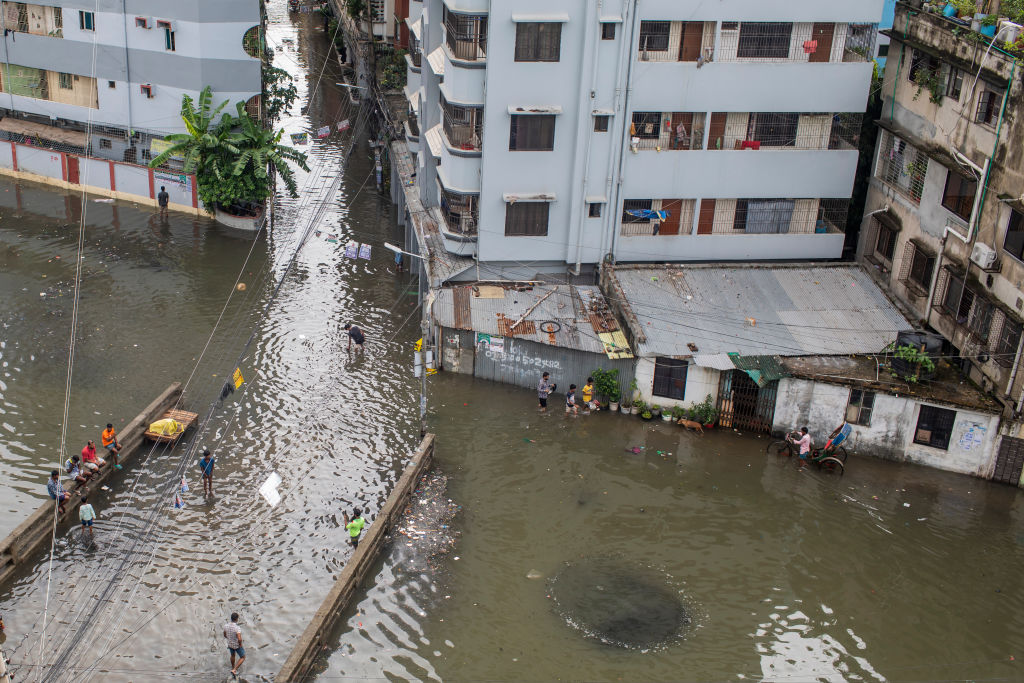
The ultimate outcome of the U.S. midterm elections will have profound climate consequences—but it probably won’t be American emissions ambitions on the line. Instead, people living in the poorer nations of the world will pay the price for how the U.S. votes.
That may seem counterintuitive. Republicans—leery of committing to emissions cuts and eager to extract more planet-warming oil and natural gas—are favored to take at least one of the legislative chambers, though it may still be days before the final outcome is certain. And it seems likely that new Republican committee chairs will try to roll back or delay President Joe Biden’s climate goals through hearings and investigations that go after portions of the Democratic agenda, including the billions of dollars of clean-energy investment in the recently-passed Inflation Reduction Act (IRA).
A version of this story first appeared in the Climate is Everything newsletter. To sign up, click here.
But even if the GOP manages to take both houses, they’re unlikely to be able to roll back progress completely. They won’t be able to repeal the IRA without overcoming an ironclad presidential veto, and they may not have much appetite to do so anyway. Attacks on the climate bill were noticeably absent from the party’s campaign ads. And, as in the case of Republicans’ failed drive to repeal the Affordable Care Act under President Donald Trump, constituents in GOP-controlled states are benefiting from liberal policy. Rural GOP strongholds are primed for solar and wind energy development, while southern states like Alabama and Tennessee are slated for more investment as green manufacturing hubs. Green investment is also just good business—even if Republicans don’t care about emissions, lots of other countries do. They’ll either get batteries, wind turbines, and solar panels here, or go shopping in China or Europe—and Republicans certainly don’t want that.
What may hinge more heavily on the midterm elections is the amount of funding the U.S. sends to poorer nations to help them adapt to climate change and cut emissions. President Biden has pledged to deliver $11 billion in climate aid every year by 2024, but to do so the Administration will have to get the money through congressional budget negotiations before the end of the legislative session. Such climate finance is a crucial sticking point in the ongoing international COP27 climate negotiations in Sharm El-Sheikh, Egypt, with wealthy industrialized nations still failing to deliver $100 billion in climate finance annually that they promised back in 2009. “The credibility of the U.S. is on the line,” says Alden Meyer, an analyst at environmental think tank E3G.
Read more: The U.S. Is Giving Way Less Than Its Fair Share of Climate Aid
Democrats will need 10 Republican votes to pass budget legislation through the Senate anyway, so the process will come down to budgetary horse-trading. But continued control of the chambers could give Democrats a bit more leverage in the negotiations, and hold back Republican efforts to cut the funding in the next legislative session. As John Kerry, the U.S. climate envoy, told a panel discussion in Egypt on Tuesday, a Republican victory could all but squash Biden’s climate aid efforts: “If what I think will happen in today’s elections happens and the House is gone, you’re not going to see that money.”
More Must-Reads From TIME
- The 100 Most Influential People of 2024
- How Far Trump Would Go
- Scenes From Pro-Palestinian Encampments Across U.S. Universities
- Saving Seconds Is Better Than Hours
- Why Your Breakfast Should Start with a Vegetable
- 6 Compliments That Land Every Time
- Welcome to the Golden Age of Ryan Gosling
- Want Weekly Recs on What to Watch, Read, and More? Sign Up for Worth Your Time
Write to Alejandro de la Garza at alejandro.delagarza@time.com